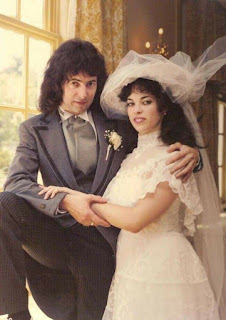It's almost always a given. There's always going to be a competition between bands. You can like one band, but not the other. You can't like both. That's what the typical situations always seem to be. You can't like both Metallica AND Megadeth. It's one or the other. That's the way it seems with Judas Priest and Iron Maiden. It's one or the other. I like both. Simply put!
KK Downing talks about the healthy competition between Midlands legends Judas Priest and London metallers Iron Maiden.
In an interview with YouTube interview Metal Wani, he said "We were quite ahead of those guys. I'm really glad that Iron Maiden have been successful and did what they did." He was asked to look back on the early days of Judas Priest, during the New Wave of British Heavy Metal, and think whether there was "a lot of rivalry" between Priest and up-and-comers Iron Maiden. In the same interview, Downing notes "No, I think we were way ahead of those guys. You know, we released our first album, 1974's
Rocka Rolla, in the early 1970s, so we were already a headlining act, we'd already done TV shows and stuff like that. And then they were a new band, the New Wave of British Heavy Metal, together with Def Leppard, I guess; Saxon, maybe and Diamond Head and some other bands. There weren't that many, really when you think about it. But, no, we were just finishing up the 1980 album
British Steel album and Iron Maiden were to support us on our British tour and I've never heard of them, but there was rivalry because they made announcements to the press that they were going to blow the bollocks off Judas Priest, you know?"
He also noted "They kind of looked like us, but it was that rivalry to start with. Obviously, the guys were young, they were full of energy and enthusiasm. The guys went on, obviously, became a great band. I'm really glad that Iron Maiden have been successful and did what they did because when people think of heavy metal at the top: Sabbath, Priest, they'll say Maiden and not too many other bands. So if you take Maiden out of there, you got Priest and Sabbath, who else are you going to put in the top three?"
Metal Wani asked "When you were looking back and revisiting some of those memories, you've got this incredible catalog of music that you've created, was there any particular song or album that jumped out that you're most proud of?"
KK Downing replied "Well, no. Yngwie Malmsteen, he was asked a similar question and he says "All of my albums, they're my children, they're my babies." It's a very good answer, really, because we do feel like that, you know? Obviously some of the fans have their favorites, but to us, they're kind of big parts of our lives because we did the writing, the recording, the touring, you know, making videos with those, even the less successful ones. I think if I were to pick one out, I would probably pick 1976's
Sad Wings of Destiny,
British Steel, 1982's
Screaming for Vengeance was our biggest-selling album. I would probably include 1984's
Defenders of the Faith."
As a final note, he added "1990's
Painkiller was a very important album, really, not just for the band, but in the genre of what we do. It was a turning point for 1990...
"In the '90s, it all got kind of darker, musically, and we started to take on the darker, heavier, thrash metal, death metal, speed metal, industrial metal, there's that many different types of metal. So I was thinking "What are these guys trying to do, burry classic metal into the ground?" That was kind of happening in a way, and then classic metal started to come back."











